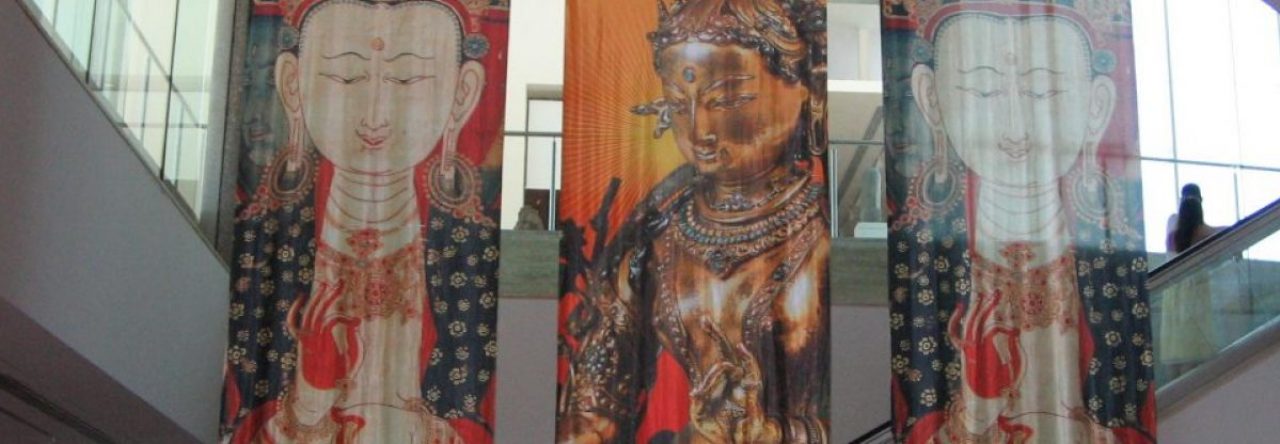A True Lover of Solitude: Bhaddekaratta Sutta
MN 131
Translated by Christopher J. Ash
Note: the title of this sutta has been translated a number of ways. It appears to baffle the scholars. When in Pāli that’s the case, I imagine that a lost idiom might be at work. I have loosely followed the reasoning of Kaṭukurunde Ñāṇananda Maha Thera, in his ‘Ideal Solitude.’
∞
A True Lover of Solitude
I have heard that one time the flourishing one was staying at Sāvatthi, in Jeta’s grove, Anāthapiṇḍika’s monastery, and he invited the assembled mendicants to listen.
“Mendicants!” he said.
“Yes, Sir,” they replied.
“I will now reveal the true meaning of ‘One who has an auspicious day.’ Pay close attention, and I will tell you.”
“Please do,” they said.
Don’t chase after a past, and don’t long for a future.
What has gone is finished with, and the future is not yet come.
Invincible, unmovable, see clearly whatever is present now –
this, right here – and so develop wisdom.
Today, right away, do what needs to be done.
Who knows? Death could know you tomorrow.
There’s certainly no bargaining with Death’s great hordes.
But one who lives ardently, day and night,
Such a one is an auspicious day, the peaceful sage announces.
And, how does one chase after a past, Practitioners? There, desiring, one thinks:
“My body or form was such-and-such in the past.” “I felt such-and-such a way in the past.” “I had such-and-such a perception in the past.” “I had such-and-such an intention in the past.” Or, “My consciousness was such-and-such in the past.” In this way, Practitioners, one chases after a past.
And, how does one not chase after a past, Practitioners? One doesn’t nurture desire by thinking: “My body or form was such-and-such in the past.” “I felt such-and-such a way in the past.” “I had such-and-such a perception in the past.” “I had such-and-such an intention in the past.” Or, “My consciousness was such-and-such in the past.” In this way, Practitioners, one doesn’t chase after a past.
“And how, Practitioners, does one long for a future? There, one nurtures delight by thinking: ‘May I have such-and-such a form or body in the future!” “May I feel such-and-such in the future!” “May I perceive such-and-such in the future.” “May I intend such-and-such in the future.” “May I have such-and-such a consciousness in the future!’ That is how one longs for a future.
“And how, Practitioners, does one not long for a future? One does not nurture delight there by thinking: ‘May I have such-and-such a form or body in the future!’ ‘May I feel such-and-such in the future!’ ‘May I perceive such-and-such in the future.’ ‘May I intend such-and-such in the future.’ ‘May I have such-and-such a consciousness in the future!’ That is how one does not long for a future.“
“And how, Practitioners, is one drawn away from present-moment events? Here, Practitioners, an untrained, ordinary person – who has not seen the wise, and so who is untrained and unskilled in the teachings of the wise; who has no regard for true people, and so who is untrained and unskilled in their teachings – sees form as self; or self as owning form; or form as in self; or self as in form.
“[And so it is for feeling-tones, perceptions, intentional factors, and consciousness, in an ordinary, untrained person.] That is how one is drawn away from present-moment events.
“And how, Practitioners, is one invincible in regard to present-moment events? Here, Practitioners, a well-taught, noble student – who has seen the wise, and so who is trained and skilled in the teachings of the wise; who has regard for true people, and so who is and trained and skilled in their teachings – doesn’t see form as self; or self as owning form; or form as in self; or self as in form.
“[And so it is for feeling-tones, perceptions, intentional factors, and consciousness, in a well-taught person.] That is how one is invincible in respect of present-moment events.
Don’t chase after a past, and don’t long for a future.
Don’t chase after a past, and don’t long for a future.
What has gone is finished with, and the future is not yet come.
Invincible, unmovable, see clearly whatever is present now –
this, right here – and so develop wisdom.
Today, right away, do what needs to be done.
Who knows? Death could know you tomorrow.
There’s certainly no bargaining with Death’s great hordes.
But one who lives ardently, day and night,
Such a one is an auspicious day, the peaceful sage announces.
“So this was what I meant when I said: ‘Practitioners, “I will now reveal the true meaning of ‘One who has an auspicious day.’”
That is what the Flourishing one said, and the mendicants were satisfied by, and delighted in, his words.
∞
Translated by Christopher J. Ash, at Blackheath. ©2016.
